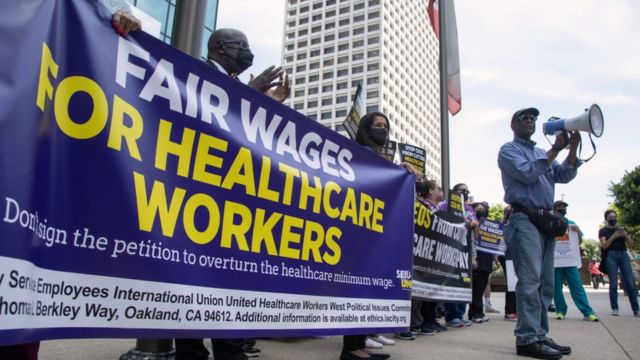South Carolina is among the 23 states that raised their minimum wage in late 2023 and early 2024. The state increased its minimum wage from $7.25 to $11 per hour in 2022, to $13 per hour in 2023, and to $15 per hour in 2024. While this rise seems to benefit low-wage workers, it has had significant consequences for the healthcare sector.
The Impact of Minimum Wage Increase on Healthcare Workers
A recent report from the South Carolina Hospital Association reveals that over 10,000 healthcare workers have been laid off or had their hours cut since the minimum wage hike in 2024. The report highlights several reasons for this outcome:
- Higher Labor Costs: Increased wages have made it harder for many healthcare providers, especially in rural and underserved areas, to stay profitable and sustainable.
- Wage Compression: The higher minimum wage has led to a situation where workers with higher skills and qualifications are earning the same or less than those with lower skills. This has reduced the motivation for further education and training and increased turnover and dissatisfaction among healthcare workers.
- Increased Demand: With more low-income workers having access to health insurance and preventive care, the demand for healthcare services has risen. However, there hasn’t been a matching increase in the supply of qualified healthcare workers, leading to a shortage and a decline in the quality and accessibility of healthcare services.
Responses from Healthcare Providers and Policymakers
In reaction to the minimum wage hike, some healthcare providers have taken steps such as:
- Using More Automation: Incorporating technology like telemedicine, artificial intelligence, and robotics to rely less on human labor and boost efficiency.
- Merging and Consolidating: Joining forces with other healthcare providers to cut costs and increase efficiency.
- Outsourcing: Moving some services like billing, coding, and transcription to countries or regions with lower labor costs.
Policymakers and advocates have suggested solutions like:
- Subsidies and Tax Credits: Offering financial support to healthcare providers to help cover the higher labor costs and encourage them to keep and hire more workers.
- Tiered Minimum Wage System: Implementing different minimum wage levels for various sectors or regions based on cost of living and market conditions.
- Universal Healthcare System: Proposing a government-run health insurance and healthcare services system for all citizens, which would regulate prices and wages in the sector.
Conclusion
The increase in the minimum wage in South Carolina has significantly impacted the healthcare sector, causing massive layoffs, reduced hours for workers, and a decline in the quality and availability of healthcare services. While efforts are being made to address these challenges, the unintended consequences of the wage hike need to be carefully managed to support both workers and healthcare providers.


